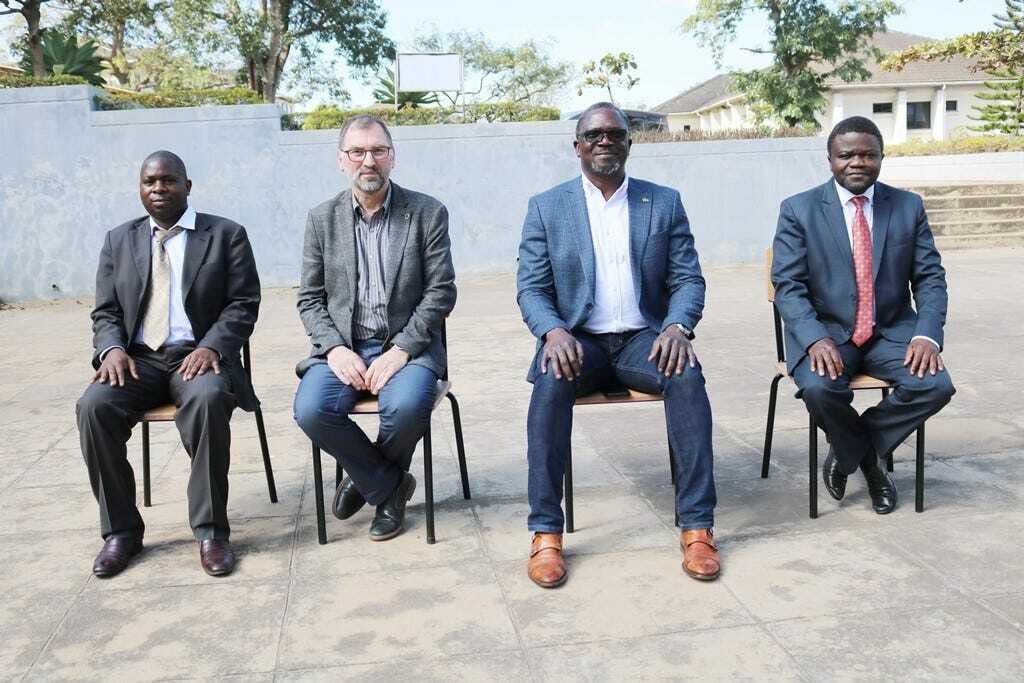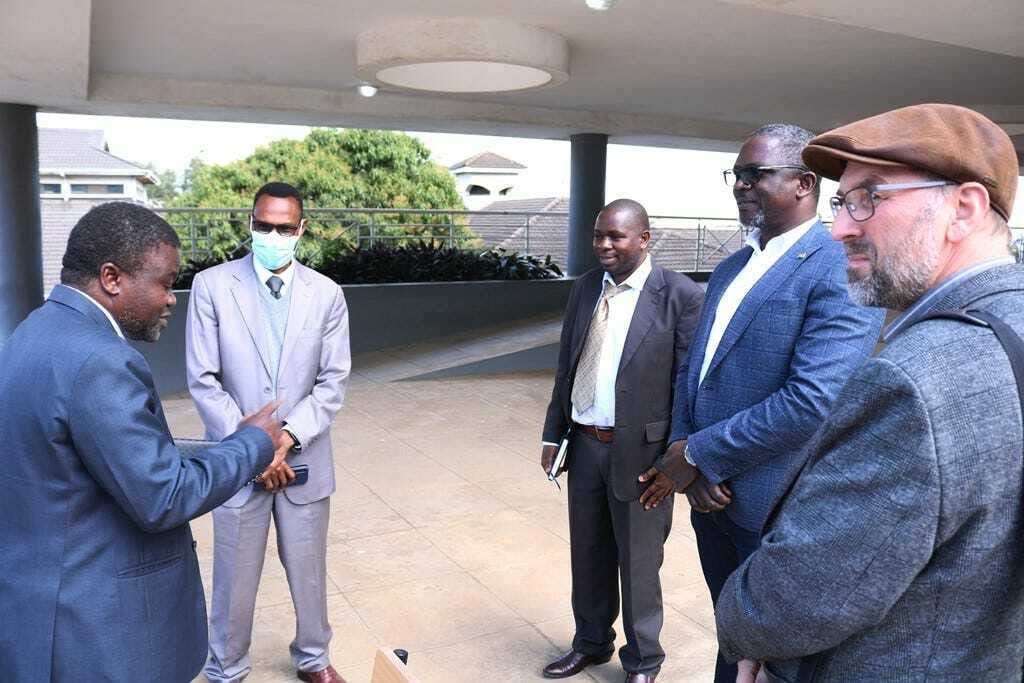
Malawi: The most important lesson from COVID-19 is that we cannot rely on medicines and medical supplies from other countries. The manufacturing nations set aside critical supplies for their citizens, writes Hellen Chabunya.
Even when we were able to purchase those critical supplies, shipping them became a nightmare.
Everyone realized that the people we called friends were not actually friends in need. It is a matter of national security to ensure that we have adequate supplies of medicines and medical supplies.
The answer is both national and international.
The challenge has been met by Kamuzu University of Health Sciences (KUHeS), a leading science and medical institution in Malawi, and Rephaiah, a research-focused pharmaceutical company registered in Iceland.
The two organizations held their first meeting on July 28, 2022, to iron out areas of cooperation.
Associate Prof Arox Kamng'ona, Dean of the School of Life Sciences and Allied Health Professionals at KUHES, opened the discussions by saying:
“When COVID 19 hit us, people were asking, where is College of Medicine (as we were known then). And they were justified to ask such questions. As the leading institution housing advanced medicine research experts in this country, we had no locally developed product to help in the fight against coronavirus disease. All we offered was our expert training in patient care. We were urged by the Minister of Health and by The President to rise to the challenge. This meeting is one of the efforts the university is undertaking so the country does not experience the scarcity of medical supplies we experienced during the peak of COVID-19. The university has placed research and manufacturing of medicine at the top of our deliverables and we intend to meet this target within the next five years.”
Kamuzu University has ambitious strategic plans to build a cutting-edge manufacturing facility with over 7000 square meters of manufacturing space. Construction is expected to begin in the first quarter of 2023.
When finished, we will be able to produce vaccines, fluids, antibiotics, and pain relievers.
“As a university, we realise we need partners with complementary skill sets and expertise. We have found in Rephaiah a perfect partner,” said Kamng’ona.
In Malawi, Rephaiah's mission is to establish a non-profit pharmaceutical manufacturing entity.
Rephaiah's core business is pediatric medicines because very few medicines are developed with children's special needs in mind.
As a result, clinicians must break a pill to meet the required dose for children.
Rephaiah intends to change that by developing child-friendly formulations.
The company is currently preparing a clinical trial for a new pediatric-friendly antimalaria drug, as well as preparing to manufacture pediatric-friendly praziquantel.
Prof Sveinbjorn Gizurarson, the founder of Rephaiah, stated:
“At the moment, some of the raw materials are made in India, then the tablets are made and packaged in Mexico and shipped to Africa for distribution. Everybody agrees this is not cost-efficient. We want both the manufacturing and packaging to be done in Africa and Rephaiah has looked to Malawi to be the centre of manufacturing these products for distribution across Africa. Our drive is producing life-saving and life-enhancing medicine for infants and young children in Malawi and Sub-Saharan Africa”.
Rephaiah has been established in Malawi as a Not-for-Profit pharmaceutical manufacturing entity, according to Mrs Hellen Chabunya, one of Rephaiah's Malawian Directors:
“Our commitment is to propel Malawi as a centre of excellence and preferred supplier for medicines in Africa, Rephaiah was registered in Malawi because our plan is that Rephaiah will be fully owned and operated by indigenous Malawians once we have fully leveraged on the global expertise we have with our partners and have trained the necessary people for the sustainable continuity of this business in keeping with our mission and service to Malawi.”
Rephaiah is not a generic producer. The original medicine is copied by a generic manufacturer.
Rephaiah develops and manufactures its own medicines, or it manufactures the original medicine under license from the original manufacturer.
Rephaiah receives technology transfer from the original manufacturer, as well as high-quality control requirements, full safety data on request, and extensive human data.
Rephaiah, in essence, produces the original medicine, not a copy.
The issue with generics is that some companies: (a) compromise raw material quality; (b) falsify stability studies; (c) falsify bioequivalence data; (d) are unwilling to discard low-quality batches; (e) provide low quality; and (f) provide the poorest quality to Africa.
This is something that KUHES and Rephaiah intend to change.
Prof Sveinbjorn Gizurarson said of the collaboration with KUHES:
“Rephaiah couldn’t find a more perfect partner than KUHES, an institution already in the business of providing the best care for patients, Rephaiah and KUHES have shared common values and together we have the expertise to set our goal of Malawians manufacturing medicines for both a national and an international market. There is already strong demand for certain drugs in the whole of Sub-Saharan Africa and we see therefore no need to wait any longer for manufacturing to start.”

As they await the construction of the much larger facility near Chileka airport, the two institutions intend to begin small-scale manufacturing at the current Kamuzu University site in Blantyre.
The team visited some facilities that could be renovated to meet WHO standards for pharmaceutical manufacturing.
The two organizations agreed to finalize the legal and agreement terms by the end of this year, with manufacturing beginning in 2023.